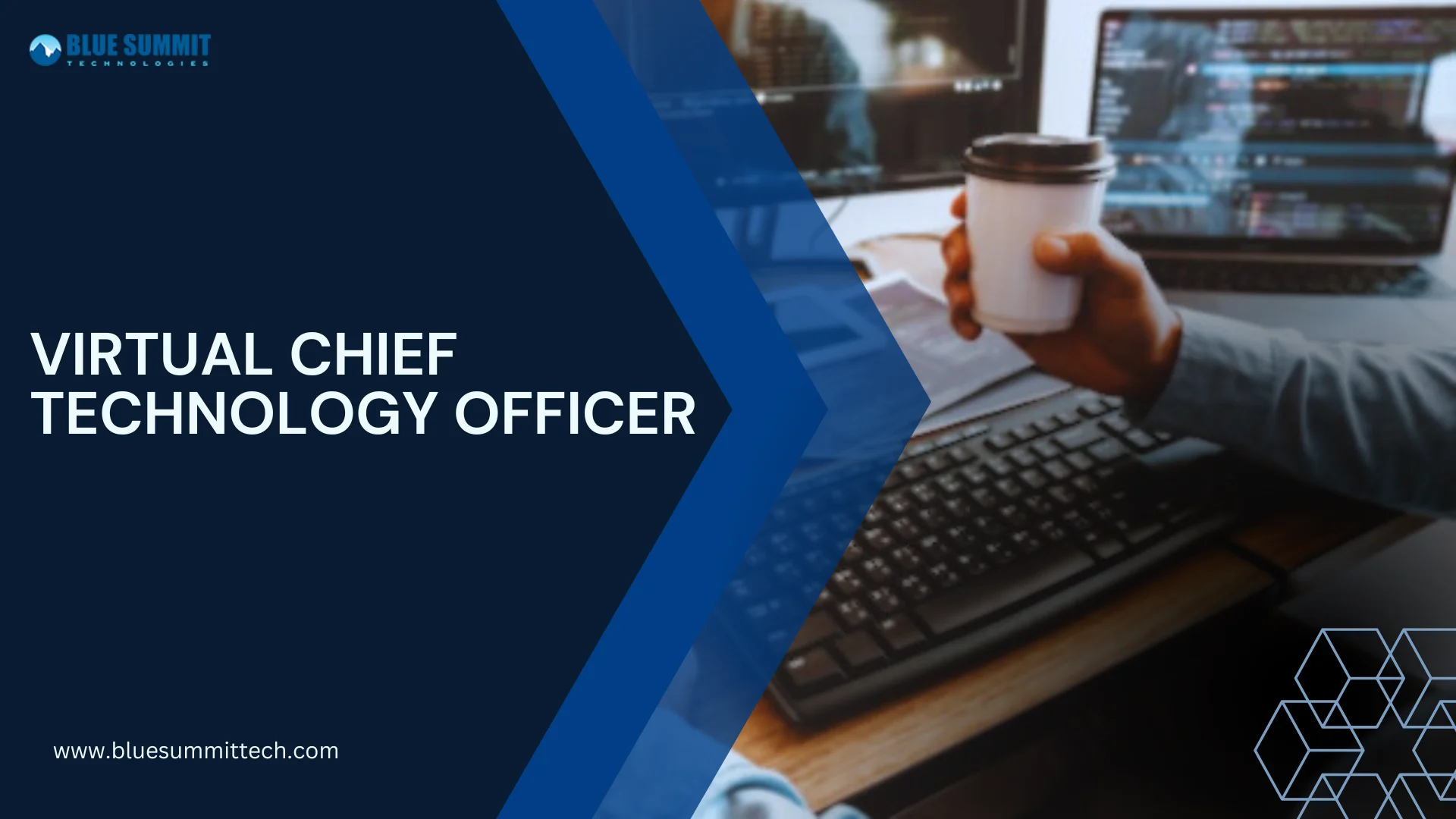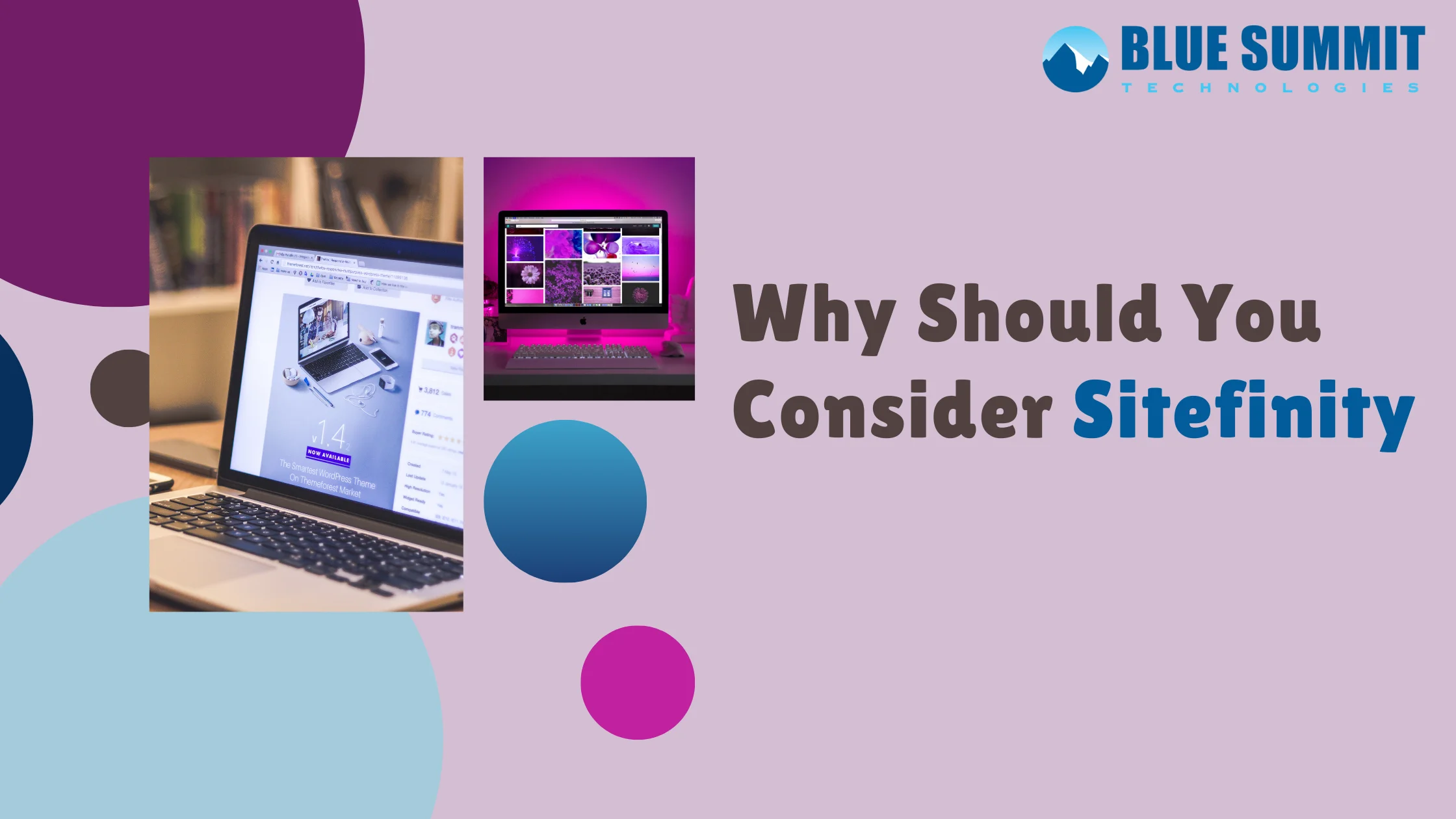
Posted on Friday, Jul 28th, 2023
VCTO Insights: Industry Trends and Predictions for the Future
As technology continues to advance at a rapid pace, the role of Chief Technology Officers (CTOs) has evolved to meet the challenges and opportunities presented by these changes. In this blog, we will explore the insights and predictions for the future of technology leadership, focusing on the vital role of Virtual Chief Technology Officers (VCTOs) in shaping industry trends. The key areas where VCTOs are making an impact and driving innovation, emphasizing their influence on organizational culture, sustainability, and their response to emerging technologies and disruptive trends have also been elaborated.
The Evolving Role of VCTOs in Shaping Technological Advancements
The role of Virtual Chief Technology Officers (VCTOs) was already gaining momentum, and it's likely that their role has continued to evolve in shaping technological advancements.Strategic Technology Leadership
VCTOs play a critical role in providing strategic technology leadership to organizations. They collaborate with the executive team to align technology initiatives with business goals and drive innovation. By understanding the company's vision and long-term objectives, VCTOs can effectively shape technological advancements that contribute to the organization's growth and success.Emphasis on Digital Transformation
In the rapidly changing technological landscape, businesses are increasingly focused on digital transformation. VCTOs are instrumental in guiding companies through this transformation process, implementing new technologies, and leveraging them to optimize business processes, enhance customer experiences, and stay competitive.Adoption of Emerging Technologies
VCTOs are responsible for staying abreast of emerging technologies and trends. They evaluate the potential of these technologies and determine how they can be integrated into the organization's operations. Whether it's Artificial Intelligence (AI), Internet of Things (IoT), blockchain, or other innovations, VCTOs are at the forefront of identifying their practical applications.Data-Driven Decision Making
VCTOs are increasingly leveraging data analytics and business intelligence tools to make informed decisions. They rely on data to identify areas for improvement, assess the impact of technology implementations, and optimize processes. Data-driven decision-making allows them to proactively address challenges and seize opportunities.Cybersecurity and Risk Management
With the rise in cyber threats, VCTOs play a crucial role in ensuring the security and privacy of digital assets. They develop robust cybersecurity strategies and implement measures to safeguard against potential breaches. Additionally, VCTOs are involved in risk management, ensuring that technology investments align with the organization's risk appetite.Facilitating Collaboration
VCTOs act as catalysts in fostering collaboration between different departments within an organization. They bridge the gap between technology teams and business units, enabling effective communication and alignment of objectives. Collaboration helps ensure that technological advancements are deployed to address specific business needs.Promoting Innovation
VCTOs encourage a culture of innovation within the organization. By fostering an environment where experimentation and learning are encouraged, they inspire teams to think creatively and develop groundbreaking solutions. This focus on innovation allows companies to remain agile and adaptable in the face of technological disruptions.Scaling Technology Infrastructure
As companies grow, their technology needs also expand. VCTOs are responsible for scaling technology infrastructure to accommodate increasing demands. This may involve migrating to cloud-based solutions, adopting scalable architectures, and optimizing systems for improved performance.Navigating Regulatory Compliance
With technology advancements come increased scrutiny and regulatory requirements. VCTOs must stay informed about evolving regulations and ensure that the organization remains compliant with relevant laws related to data protection, cybersecurity, and other technology-related matters.Addressing Ethical and Social Implications
As technology becomes more ingrained in society, VCTOs must consider the ethical and social implications of their decisions. They need to be aware of issues such as bias in AI algorithms, data privacy concerns, and the potential impact of technology on individuals and communities.The Impact of Virtual CTO on Organizational Culture and Workforce Dynamics
The emergence and growing influence of Virtual Chief Technology Officers (VCTOs) can have a significant impact on organizational culture and workforce dynamics. Here are some of the key ways VCTOs can influence these aspects:Technology-Driven Culture
Being technology experts, can foster a culture that emphasizes the importance of technology in achieving business goals. They can promote a mindset of continuous learning and innovation, encouraging employees to embrace technological advancements and stay updated with the latest trends in their respective fields.Adaptability and Agility
They often have to deal with diverse technological challenges, they can install a sense of adaptability and agility in the organization. Their approach to problem-solving and quick decision-making can influence the workforce to be more flexible and open to change, which is essential in today's rapidly evolving technological landscape.Collaboration between Departments
They typically work across various departments, including IT, marketing, finance, and operations. This interdisciplinary collaboration can break down silos and improve communication between different teams. As a result, employees may feel more interconnected, fostering a culture of cross-functional teamwork and cooperation.Remote and Flexible Work Practices
The presence of VCTOs, who are often virtual and remote themselves, can contribute to the adoption of remote and flexible work practices within the organization. As they prioritize outcomes over physical presence, this approach can create a more inclusive work environment and help attract talent from diverse geographical locations.Empowering Technical Talent
Having a VCTO who is deeply invested in technology can be inspiring for technical talent within the organization. It can provide them with a sense of purpose and validation, leading to increased job satisfaction and engagement. This empowerment of technical teams can lead to more innovative and high-quality solutions.Technology-First Approach
With a VCTO at the helm, organizations may prioritize technology in their decision-making processes. From product development to customer experience enhancement, technology-driven solutions may become a central focus, influencing how the workforce approaches their tasks and responsibilities.Data-Driven Decision Making
VCTOs often emphasize data-driven decision-making processes. This can foster a culture of data literacy and encourage employees to base their decisions on evidence and insights rather than intuition alone. Consequently, employees become more comfortable working with data and analytics tools.Investment in Skill Development
VCTOs can identify skill gaps within the organization and advocate for training and upskilling initiatives. They understand the importance of investing in employee development to keep pace with technological advancements, which can lead to a more skilled and capable workforce.Diversity and Inclusion in Technology
VCTOs, by their role, may be more attuned to the need for diversity and inclusion in technology-related fields. They can influence hiring practices and create an environment that encourages underrepresented groups to pursue careers in technology.Balancing Human-Centric and Tech-Centric Approaches
While technology is essential, VCTOs also recognize the importance of balancing human-centric approaches in the workplace. They can encourage the use of technology to enhance efficiency and effectiveness while ensuring that employees' well-being and work-life balance are considered.Virtual CTO's Response to Emerging Technologies and Disruptive Trends
Blockchain Integration
VCTOs are intrigued by the potential of blockchain technology to revolutionize various industries. By leveraging blockchain's decentralized and tamper-resistant nature, businesses can enhance data security, streamline supply chain processes, and facilitate transparent and immutable transactions. VCTOs are exploring how blockchain can create new business models and foster trust among stakeholders.Augmented and Virtual Reality
VCTOs are investigating the applications of augmented reality (AR) and virtual reality (VR) to enhance customer experiences, employee training, and product development. AR and VR technologies can create immersive and interactive experiences, enabling businesses to engage customers in innovative ways. VCTOs understand the potential of these technologies to disrupt traditional industries and are actively exploring their integration into their strategic plans.Quantum Computing Explorations
As quantum computing advances, VCTOs are closely monitoring its potential impact on industries. Quantum computing's ability to process vast amounts of data exponentially faster than classical computers holds promise for solving complex problems in fields like cryptography, pharmaceuticals, and logistics. While still in its early stages, quantum computing has the potential to revolutionize data processing and encryption, and VCTOs are keen to seize the opportunities it presents.Conclusion
From embracing AI and IoT to fostering a culture of creativity and sustainability, Virtual CTO is at the forefront of technological advancements. By responding to emerging technologies and disruptive trends, they ensure that their organizations remain agile, adaptable, and future-ready. As this role continues to evolve, businesses can look forward to leveraging technology's full potential and achieving long-term success in a rapidly changing landscape.Visit our page to know more about our services and skills and we would be happy to get your queries cleared.
Blue Summit has collaborated with OdiTek Solutions, a frontline custom software development company. It is trusted for its high service quality and delivery consistency. Visit our partner's page to720day and get your business streamlined.
REFER TO OTHER RELEVANT CONTENTS

Jasper Reports Development
In the field of open source reporting, Jasper Reports is the most well-known and extensively utilized project. Thousands of software products include its reporting features, and it has been used in hundreds of thousands of projects as a production-grade reporting tool. As a result, Jaspersoft...
read more







